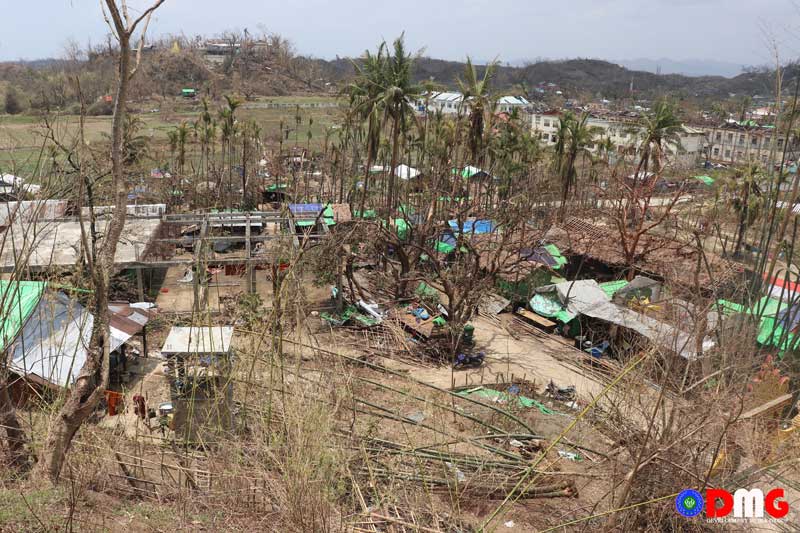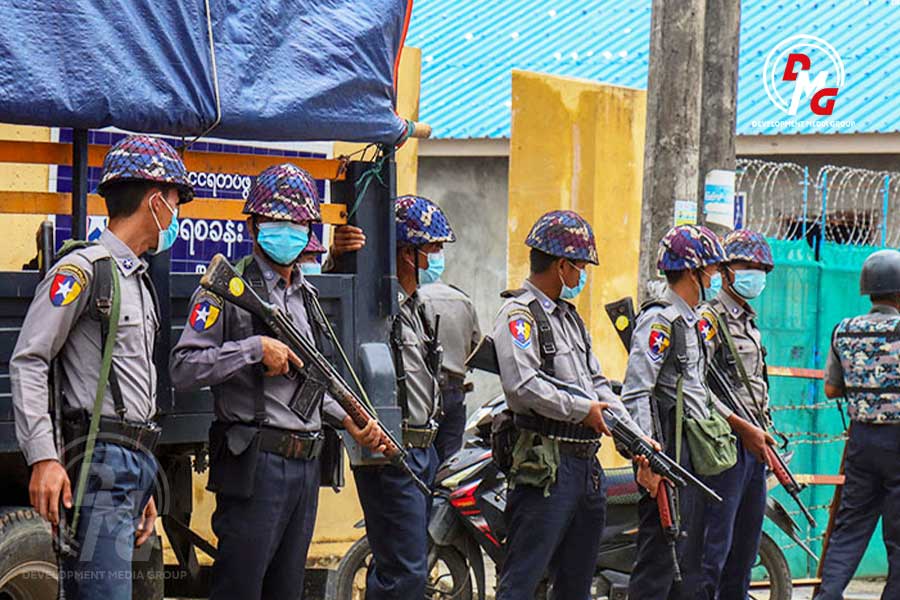- Junta expands naval presence along Arakan coast to regain lost territory
- Nearly 70 civilians and POW family members killed or injured by junta attacks in Arakan State in one month
- Junta accused of extorting money from detained Muslims in Sittwe
- Weekly Highlights from Arakan State (Jan 26 to Feb 1, 2026)
- Arakanese youth stabbed in Mae Sot urgently needs financial aid for medical treatment
Reforestation needed after Cyclone Mocha destroys many trees in Arakan State
There is an urgent need to plant trees in the current rainy season in Arakan State, environmentalists are warning, as many trees including perennial plants were blown down by Cyclone Mocha.
16 Jun 2023

DMG Newsroom
16 June 2023, Sittwe
There is an urgent need to plant trees in the current rainy season in Arakan State, environmentalists are warning, as many trees including perennial plants were blown down by Cyclone Mocha.
Environmentalists say trees that can grow big in a short period of time should be chosen for reforestation efforts, and authorities must redouble their efforts to conserve forests.
The “Sein Lan Si” environmental conservation group based in Mrauk-U said it plans to grow around 100,000 trees in the current rainy season.
“We grew only around 10,000 trees last year. We take care of those trees by fencing them. We also helped locals grow trees. We told them to take care of those trees by themselves,” said Myat Min Soe, a member of Sein Lan Si.
Like in other parts of Myanmar, departments and environmental organisations grow trees in every rainy season, but few trees grow big because in most cases, growers fail to take proper care of them, said environmentalists.
“They fail to take proper care of the trees that they grow. They are less interested in taking care of trees,” said environmentalist Ann resident Ko Myo Lwin.
Climate change and depletion of groundwater and soil pose obstacles for trees to grow big, said Ko Myo Lwin.
Manpower, money and time is needed to grow and take proper care of trees, said growers.
Ko Min Soe Naing of the Minbya Youths Organization said: “We can’t always check those trees. We have fenced the trees after growing them. Some trees were deliberately destroyed and some wither due to natural causes. The Forest Department supplies us with young trees, but they don’t arrange for conservation.”
As many trees in both rural and urban areas as well as in forests and mountains were blown down by the storm, the Department of Meteorology and Hydrology predicts adverse weather conditions, high temperatures and drought in the years to come. It will also have impacts on wildlife, said environmentalists.















.jpg)

